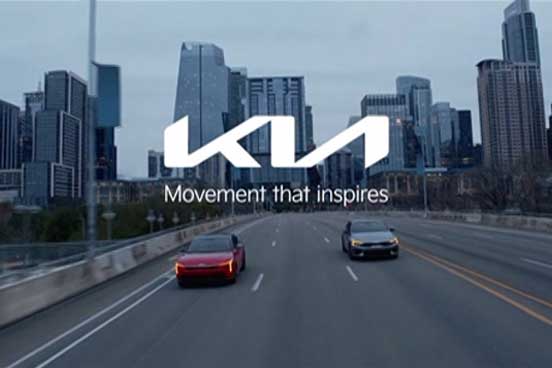Sales performance is never built on guesswork. Many businesses attempt DIY sales training, believing it saves time and money. In reality, this often results in wasted resources and missed opportunities. At Dynamo Selling, the focus is on structured, evidence-based training that equips teams with the strategies needed to close deals and build lasting client relationships. Understanding the pitfalls of DIY sales training is the first step towards avoiding costly errors.
Key Takeaways
- DIY sales training often sacrifices structure and accountability.
- Emotional intelligence is vital but often ignored.
- Industry-specific strategies are necessary for measurable success.
- Feedback loops drive improvement and reduce repeated mistakes.
- Long-term growth relies on sustainable strategies, not quick fixes.
The Hidden Risks of DIY Sales Training
Sales is a skill that demands expertise, repetition, and tailored coaching. Without professional guidance, training sessions often lack structure, proven techniques, and accountability. The result is a workforce that appears busy but struggles to deliver measurable outcomes.
Below are the most common mistakes that undermine the effectiveness of self-led training initiatives.
1. Overemphasis on Theory
DIY training programmes often lean too heavily on sales theories, presentations, or manuals rather than focusing on how those ideas can be applied in real scenarios. While theory provides a foundation, sales success is achieved through practice, responding to objections, refining communication styles, and adapting to diverse client situations. Without opportunities for role-play and scenario-based exercises, sales professionals may understand concepts but lack the confidence to implement concepts when it matters most. Practical application bridges the gap between knowledge and measurable results.
2. Ignoring Emotional Intelligence
Sales is more than delivering facts about a product or service; it is about building trust and rapport. A frequent shortcoming in self-led training is the neglect of emotional intelligence. Skills such as recognising client emotions, adjusting tone, and responding empathetically can determine whether a conversation progresses or ends abruptly. Emotional intelligence enables stronger connections, and studies repeatedly show that sales professionals who master this element consistently outperform peers. Without structured guidance, DIY training often overlooks this essential human factor.
3. Lack of Industry-Specific Tailoring
Not all industries operate the same way, yet DIY training often assumes that one method can be applied across all sectors. Each industry has unique buying behaviours, decision-making processes, and customer expectations. For example, a client purchasing retail products may be motivated by immediacy and price, while corporate clients often focus on long-term relationship and risk management. Without tailoring training to industry-specific needs, sales teams risk using a one-size-fits-all approach that fails to resonate with clients and reduces effectiveness in closing deals.
4. No Structured Feedback
Another limitation of in-house training is the absence of consistent and constructive feedback. Sales professionals may rehearse pitches or practise techniques, but without expert observation and targeted advice, mistakes go uncorrected. Over time, these small errors become ingrained habits that hinder performance. Professional sales training incorporates structured feedback systems, accountability checkpoints, and performance assessments that enable individuals to continuously improve. Without these mechanisms, progress tends to stall, leaving teams with unrefined skills and inconsistent results.
5. Short-Term Focus
DIY training often places emphasis on achieving immediate results, quick wins that may temporarily boost numbers but fail to create long-term growth. True sales success is built on more than one-off transactions. It requires nurturing relationships, developing negotiation techniques, and maintaining consistent communication that fosters client loyalty. Short-term approaches rarely address these deeper elements, which means teams may close a deal today but struggle to sustain momentum in the months ahead. Professional training ensures strategies are designed for sustainable success, not just short bursts of activity.
Why Professional Sales Training Makes the Difference
Professional training provides structure, evidence-backed strategies, and an external perspective that is difficult to replicate through self-directed efforts. It equips sales teams with tested methodologies, practical tools, and measurable outcomes that go beyond surface-level improvements. Importantly, it also helps organisations remain agile, adapting to market shifts, changing customer expectations, and competitive pressures. These are areas where DIY programmes often fall short.
Here are a few examples of how professional training creates measurable impact:
Leadership Sales Training
Leadership-focused programmes go beyond teaching sales skills. Such programmes develop leaders who can influence culture, motivate teams, and create strategies that drive consistent performance. Strong leadership requires qualities such as accountability, resilience, and emotional intelligence, which set the tone for a positive sales culture and help organisations adapt during market fluctuations. With the right training, sales leaders are not only able to guide teams but also inspire trust and foster long-term organisational growth.
Retail Sales Training
In retail environments, every customer interaction matters. Professional training in this area places emphasis on first impressions, upselling techniques, and understanding customer psychology. Frontline staff are taught to engage customers with confidence, build rapport, and adapt to buying signals in real time. This tailored approach to retail sales strengthens brand loyalty, improves customer satisfaction, and ultimately increases revenue benefits that general DIY training rarely provides.
Corporate Training
Selling in the corporate space requires a different level of sophistication. Complex negotiations, multiple decision-makers, and longer sales cycles all demand a refined skill set. Professional corporate sales training equips teams with strategies for stakeholder engagement, value-based selling, and managing extended deal pipelines. By mastering these techniques, sales professionals can navigate high-value accounts with confidence, positioning as trusted advisors rather than just suppliers.
Conclusion
DIY sales training may appear cost-effective, but the hidden risks often outweigh the benefits. Professional guidance ensures structure, accountability, and industry-relevant elements essential for sustainable growth. Dynamo Selling provides tailored training solutions that empower sales teams to excel in any market. Contact us today to build a stronger, more successful sales team.
FAQs
- Is DIY sales training ever effective?
DIY sales training may be useful for covering basic product knowledge, but it typically falls short when it comes to achieving measurable sales growth without structured methods and expert feedback.
- Why does emotional intelligence matter in sales?
Emotional intelligence is important in sales because it builds trust, helps recognise customer emotions, and allows responses to be adjusted in ways that strengthen relationships.
- How does professional sales training improve results?
Professional training improves outcomes by providing structured learning, industry-specific strategies, role-playing exercises, and accountability frameworks that encourage lasting behavioural change.
- Can sales training be customised for different industries?
Sales training can be tailored to align with the unique challenges, customer behaviours, and decision-making processes within each industry, ensuring maximum relevance and impact.
- What is the difference between short-term sales tactics and long-term strategies?
Short-term sales tactics focus on immediate wins, while long-term strategies concentrate on building customer loyalty, securing repeat business, and supporting sustainable revenue growth.
- How often should sales teams undergo training?
Regular training is recommended to keep skills current and aligned with market demands. Refreshers conducted quarterly or workshops held biannually are often effective.







